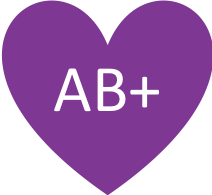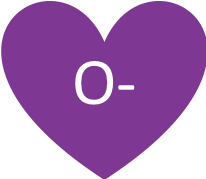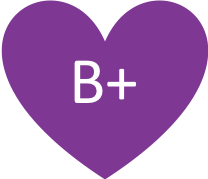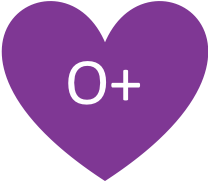WHAT MAKES YOUR BLOOD TYPE ‘+’ OR ‘-’?
The presence or absence of an antigen called the Rhesus D (RhD) antigen determines whether your blood group is positive (+) or negative (-). It is important to consider this antigen as it is the component of blood that is most likely to cause an immune response if matched incorrectly.
NEGATIVE BLOOD
Approximately 15% of the UK population has RhD negative blood. People with negative blood have NOT inherited the RhD antigen from their parents, and this means that people with negative blood can only receive negative blood.
If a person with negative blood receives RhD positive blood, the body will produce anti-RhD antibodies to attack and destroy the RhD antigen. This causes an immune response that can be fatal.
POSITIVE BLOOD
Approximately 85% of the UK population has RhD+ blood. People with positive blood have inherited the RhD antigen from their parents, meaning that they can receive both positive and negative blood, as if they receive negative blood, there is no antigen to attack and destroy.
-

UNIVERSAL RECIPIENT
The specific universal recipient is AB+, as people with positive blood can receive both positive and negative blood. It couldn’t be AB- blood, as people with negative blood can’t receive positive blood without experiencing an immune response. That is why AB+ is the universal recipient, and people with this blood type can receive all blood types.
-

UNIVERSAL DONOR
The specific universal donor is O-, as negative blood can be given to those with positive blood as it doesn’t contain that RhD antigen, reducing the risk of an immune response. Not everyone can receive O+ blood as it has the RhD antigen, so if O+ blood was given to someone who is O-, this would cause an immune response as they would produce anti-RhD antibodies to try and get rid of the blood.








